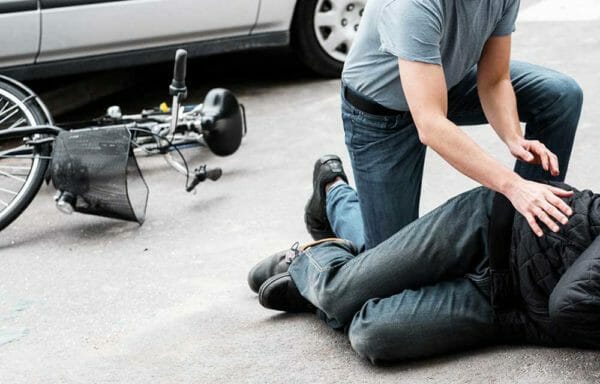"Bicycle Accidents Kill More Children Than Guns, But You Don't See Calls To Ban Bikes."
That is the title of an editorial Dean Weingarten wrote for Ammoland. According to statistics he cites from the Center for Disease Control's Database, there were 2467 "unintentional pedal cyclist deaths"--for a rate of 0.18 per 100,000-- of children aged 0 to 17 from 1999 to 2017. During the same period, according to the CDC statistics Weingarten uses, there were 1994 "unintentional firearm deaths" of children in that same age group, for a rate of 0.14 per 1000,000.
To be fair, Weingarten reports that both figures are dwarfed by the numbers of children who died unintentionally as occupants of motor vehicles, in "unknown situations, motor vehicles," or from suffocation, drowning or a half-dozen other causes. Still, he uses the disparity between the unintentional deaths by bicycle and by firearm to try to make the case that guns are unfairly blamed for children's deaths.
He may be right about the burden of blame borne by firearms, in part because the numbers of children accidentally killed by firearms has been trending downward. But he is using that fact, and the greater number of deaths by bicycle, to rail against proposals to require gun owners to keep their weapons locked and unloaded. Such a requirement, he claims, keeps gun owners from using their weapons in self-defense.
Whatever the validity of that argument, using bicycles as the "straw man," if you will, does nothing to support it. For one thing, a child isn't going to hurt him or herself by finding a bicycle in the attic or garage, as he or she can by finding a loaded gun in daddy's desk.
 |
| This image was included with Dean Weingarten's editorial. |
More to the point, though, is this: Even though guns outnumber people in the US, an American kid is more far more likely, at any given moment, to ride a bike than to chance upon a gun. When that kid is on a bike, he or she will spend more time riding than he or she would in the presence of the firearm. And, finally, it's harder to control where and in what conditions a kid rides than it is to keep a child away from a gun, or to ensure that the gun can't be fired accidentally.
So Weingarten's argument that bicycles are more dangerous than guns to children doesn't hold up. Even so, he tries to use it to bolster an even flimsier--and blatantly sexist--argument that lawmakers (Democrats, mainly) claim that they want tighter gun regulations "for the children" to pander to non-gun owners, "most of whom are women," according to Weingarten. On the other hand, he says (probably correctly) that most gun owners are men.
He ends his article with an even clumsier attempt to appeal to emotion: "But the real elephant in the room is why are we not calling for bans on bikes?" (sic) Of course, that piles yet another fallacy onto an argument full of fallacies: How in the world can he, or anyone, compare banning bicycles to keeping guns locked and unloaded?





